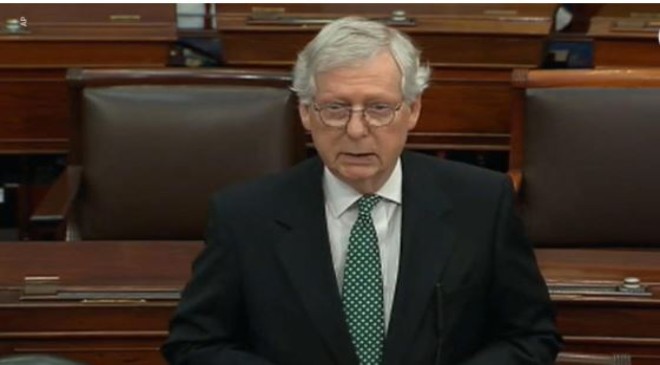With less than two weeks until a partial government shutdown, the House of Representatives is expected to vote on a bill today that combines a must-pass spending bill with tighter voting rules, which will have little to no chance of success in the Democratic-majority Senate.
Congress must pass spending legislation before the start of the new fiscal year on Oct. 1 to avoid furloughing thousands of federal workers and reducing federal services just weeks before the Nov. 5 election.
Also Read– Toyota enters V8 Supercars in huge development that was kept secret for more than a year
Senate Republican Leader Mitch McConnell of Kentucky doesn’t want a political battle, saying his party would likely be blamed if Congress allows the government to shut down shortly before the election.
“I’m for whatever avoids a government shutdown,” he told reporters on Tuesday.

What happens to federal workers during a government shutdown?
Federal agencies classify their workers as “essential” or “nonessential.” Essential employees continue to work but might not get paid right away. Nonessential employees are furloughed, meaning they can’t work or get paid until the government reopens, according to a breakdown compiled by Reuters.
During the longest shutdown in U.S. history in 2018-2019, 800,000 federal employees went without pay for 35 days.
What happens to Social Security and Medicare?
Retirement and disability benefits from Social Security will proceed without interruption. Medicare and Medicaid benefits will also continue, though some delays may occur.

What about Veterans’ Benefits and Food Assistance?
Military veterans will continue to receive their benefits and medical care. Food assistance programs like the Supplemental Nutrition Assistance Program (SNAP) will also continue, though there could be minor disruptions.
What about the military?
The 2 million active-duty U.S. military personnel will stay on the job. However, about half of the Pentagon’s 800,000 civilian employees will face furloughs. The National Nuclear Security Administration will continue to oversee nuclear weapons.
Law Enforcement
Federal law enforcement agencies, including the FBI, DEA, and prison staff, will remain operational. The Secret Service and Coast Guard will continue their duties.
National Parks
National parks, monuments, and other sites will close to the public, with rangers furloughed and facilities shut down. Some states may temporarily fund park operations, as seen during the 2018-2019 shutdown.

Borders and Homeland Security
Border Patrol and immigration enforcement agents will continue working. However, local governments will not receive new aid for migrant shelters.
Transportation
Airport security screeners and air-traffic controllers will remain on duty, but new hires and some major infrastructure projects could face delays. Absenteeism, as seen in previous shutdowns, might impact airport operations.
Also Read– Former Bush AG: Harris endorsement ‘contrary to his nature’
Congressional Pay
Lawmakers will continue to receive paychecks during a shutdown, while staffers will be furloughed, though essential personnel will still work.
Impact on the White House
During past shutdowns, the White House furloughed a significant portion of its staff. Essential offices, like the National Security Council, will continue operating, while others will be scaled back. The president’s salary remains unaffected by a shutdown.





































